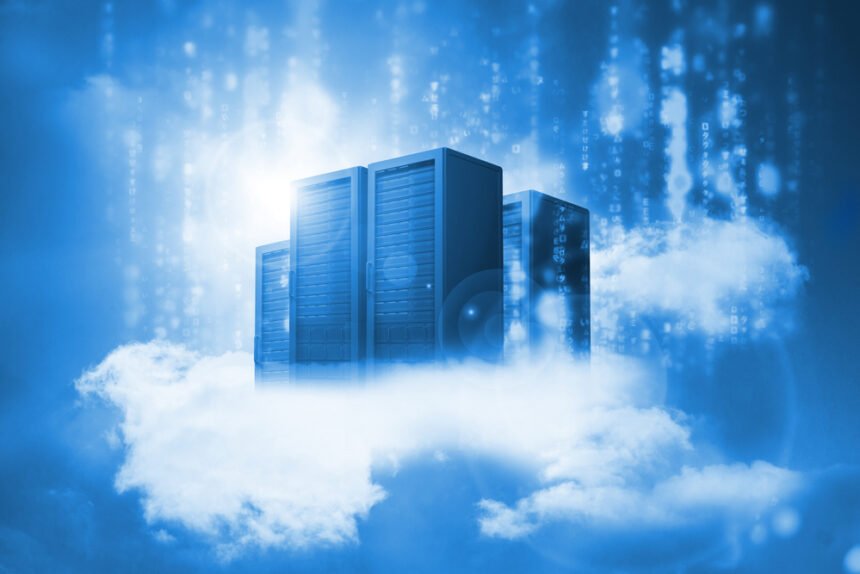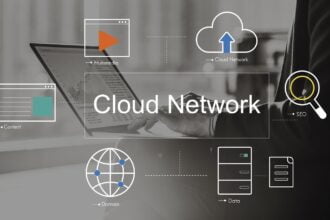Cloud technology is becoming more important than ever. Precedence Research projects that global companies will spend over $1.6 trillion on cloud services in 2030.
- Investing in the Best Servers for Cloud Computing
- What to look for in a server to meet your cloud computing needs
- Server configuration
- Type of database
- What else should you look at when considering different types of used servers?
- Now that we’ve covered all that, here are some of the best options in used servers
- Choose the Best Servers for Your Cloud Strategy
Companies will need to get used to investing in the right infrastructure to make the most of their cloud capabilities. This is going to require them to invest in the best servers to connect with cloud services, especially if they want to host their own.
Investing in the Best Servers for Cloud Computing
For many businesses, the decision to buy used servers is a no-brainer. Refurbished servers may not offer the same bells and whistles as their new counterparts, but they usually still offer similar capabilities – at a fraction of the cost. Organizations that need servers for their databases or cloud computing can’t just go out and buy the first option that presents itself, though. It’s important to know what their needs are, so they can get a product that meets those needs.
Of course, one option is to buy refurbished servers online from a company like Alta Technologies. This lets you compare all your options before making a purchase, plus you can talk with an experienced representative who can guide you to the product that fits your requirements. They will understand the basis of your cloud strategy and make sure that you use the right servers to meet your goals.
It’s helpful to know the names of the best used servers to buy, but it’s even more helpful to know how to choose them yourself. To learn more about both, just keep reading.
What to look for in a server to meet your cloud computing needs
No matter what type of used server your organization needs, there are certain aspects you’ll want to look at. Choosing a reliable brand is good, but you won’t necessarily find the best server to meet your cloud computing needs from a big-name brand. What matters most is whether or not the server meets your required specifications. Since there are a lot of nuances with cloud computing, you will need to
Here are a few things to look for when choosing used servers to support your cloud computing strategy.
Server configuration
Your server’s configuration is going to be essential for your cloud solutions. The main parameters to look at here are the processors, the storage, and the RAM.
- Processors (CPUs)
Some servers come with one CPU, while others have multi-core processors. There are also options like multithreaded processors, which can enable a single processor to perform better than two or more lesser processors. You should also look at the processor’s clock speed, which will tell you how many instructions it can execute each second (measured in GHz). However, if a CPU has features like reduced latency, increased data throughput, subcycling, multiple threading, or multiple cores, this could make it more efficient than other processors that technically have a faster clock speed.
- Storage
Scalability is key for any server, so you should have some idea of how much storage you’ll need. The type of storage you choose will also have an impact; there are a ton of options, so this is probably something you should discuss more in-depth with an expert. You could get servers with NAS, JBOD, or SAN storage, which can accommodate various types of drives. If you want the best of the best, SANs is one of the top options.
- RAM
In general, more is more with RAM. Random Access Memory will help determine how fast a server can process data in different formats, so you don’t want to skimp on this feature.
Type of database
If you’re looking for a database server, you’ll need something built for the job. There are several different options, and they all fulfill different jobs based on their unique schema.
- MS SQL Server
As a relational database management system, this server uses the Transact-SQL query language and is good for large databases. It’s a high-performance, secure, and reliable option, whether you’re retrieving information from on-premise locations or from the cloud.
- PostgreSQL
Another relational system, the PostgreSQL is in full compliance with top management standards; it even has ACID support. It may not be as commonly used as some other kinds of database management systems, but it’s a great choice for complex applications and websites. It supports multi-versioning, and can be modified by more than one user with the assistance of MVCC. Its best features include mechanisms of transactions and replication, lack of restrictions for database size, and an expandable system of programming languages. Overall, it’s highly scalable and very advanced.
- MariaDB
One of the more popular database management systems, MariaDB was developed with simplicity in mind. It’s compatible with applications that utilize MySQL, because it originated from the MySQL RDBMS. However, MySQL is no longer at the forefront of innovation, so a lot of users are switching to MariaDB instead. With an enhanced query optimizer and excellent functionality, this database management system is a top performer.
- MySQL
Here’s one of the most common server databases. Server flexibility is provided through multiple tables, including InnoDB and MyISAM. Users can store data of either fixed or variable lengths, and web frameworks are utilized for basic configuration. As you’d expect of such a popular database, MySQL offers superior security and enough processing power to handle large quantities of data.
What else should you look at when considering different types of used servers?
Whether you’re buying new or used servers, there’s no reason to compromise on the most important features. Here are some key criteria to consider during your hunt for the right server:
- Application development – languages used, web development, design tools
- Working environment – addressable memory size, hardware/software platforms, hardware requirements
- Security – protection system, backup, crash recovery
- System architecture features and functional parameters – network capabilities, mobility, distribution, scalability
- Data model – hierarchical, object, network
- Performance – query optimization, TPC rating, parallel architecture capabilities
- Additional features – control over the various kinds of memory, auto-tuning of the system, implementation of the query language, search tools, support for triggers and stored procedures
- Product warranty – whether or not the seller offers returns or exchanges, product guarantees, routine technical support, or emergency technical support
Now that we’ve covered all that, here are some of the best options in used servers
- Dell PowerEdge R940
- Dell PowerEdge R740
- HPE ProLiant DL580 Gen10
- HPE ProLiant DL380 Gen10
- HPE Apollo 6000 Gen10 System
- Lenovo ThinkSystem SR670
- Lenovo ThinkSystem SR650
- 1U Lenovo ThinkSystem SR570
- 2U Lenovo ThinkSystem SR550
- Quanta Servers
- Supermicro Servers
Choose the Best Servers for Your Cloud Strategy
You need the right servers to support your cloud strategy. Perhaps the hardest part of finding the right server for your organization is figuring out which features you need it to have. If you don’t have all the information already at your fingertips, try finding a reputable seller who can assist you in your search; they should know what they’re talking about. Once that’s done, you will have completed the hardest part of the job.








